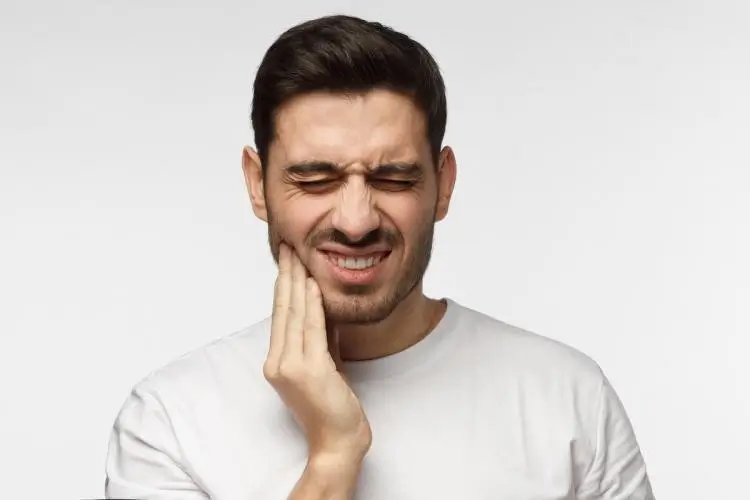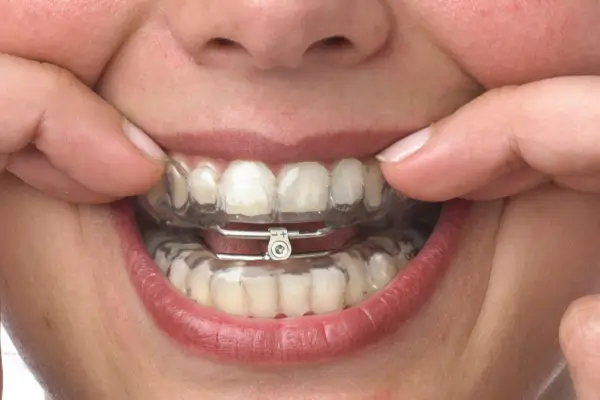Other Dental Procedures
Effective Treatment at Gloucester Family Dental Care, NSW
At Gloucester Family Dental Care in New South Wales (NSW), we specialize in treating a range of other dental procedures, including grinding or clenching teeth (bruxism) and sleep apnea and snoring. Bruxism, often caused by stress or misaligned teeth, can lead to jaw pain, headaches, and damaged teeth if untreated. Our expert team provides custom solutions like night guards to protect your teeth and relieve symptoms. For sleep apnea and snoring, which can disrupt your sleep and overall health, we offer advanced dental appliances designed to keep your airways open, ensuring better rest and improved well-being. Let us help you achieve a healthier, more comfortable lifestyle with our personalized treatments.

Grinding / clenching teeth/bruxism

sleep apnea & snoring
Understanding and Treating Bruxism (Grinding and Clenching Teeth)
Bruxism, a common yet often misunderstood condition, involves the grinding of teeth and clenching of the jaw, typically occurring during sleep. This disorder, caused by an overactive chewing reflex during deep sleep, can lead to significant oral health problems if left untreated. The grinding action, primarily affecting the front six teeth of the upper and lower arches, places undue stress on the temporomandibular joints (TMJ) and chewing muscles, causing symptoms like headaches, earaches, jaw pain, and even anxiety.
Untreated bruxism can result in gum recession, tooth loss, arthritis in the TMJ, and myofascial pain. It’s crucial to identify and treat bruxism early, as it is often misdiagnosed due to its similarity to other causes of tooth wear, such as aggressive brushing or acidic diets.
Why Treat Bruxism Promptly?
- Prevent Gum Recession and Tooth Loss
- Avoid Occlusal Trauma
- Reduce Arthritis Risk
- Relieve Myofascial Pain
Treatment Options for Bruxism
- Custom Mouthguards
- NTI-tss Device
- Botox® Therapy
- Stress Management & Relaxation Techniques:
When bruxism is managed, restorative procedures like crowns, gum grafts, and crown lengthening can repair any damage and restore your smile.
Frequently Asked Questions
Signs include worn-down teeth, jaw pain, headaches, and disrupted sleep. A professional diagnosis is essential to differentiate bruxism from other causes of tooth wear.
Yes, stress is a leading factor in bruxism. Techniques like relaxation exercises and stress management can help reduce its impact.
Custom-made mouthguards are highly effective in reducing tooth wear and alleviating stress on the jaw and TMJ, providing long-term relief.

sleep apnea & snoring
Did you know that between 1/3 and 1/2 of all adult Americans snore or have snored at some point? However, snoring – even chronically – is not necessarily indicative of sleep apnea. In fact, only 1/5 of adults have some form of sleep apnea, which can be a life threatening condition. The difference between benign snoring and sleep apnea is that apnea patients experience cessations in their breathing patterns and may suddenly gasp for air or choke in their sleep. This can lead to severe drowsiness and fatigue during the day, as well as depression, memory loss and decreased libido. treatment for sleep apnea and snoring usually depends on the severity of the condition and whether patients are experiencing apnea or simple snoring. Some of the most common treatments include behavioral modifications, oral sleep appliances, continuous positive airway pressure devices, and in some cases surgery.
Did you know…
that you can reduce your chances of snoring or developing apnea by changing a few simple habits? According to the American Association of Oral and Maxillofacial Surgeons, one of the most effective ways of alleviating apnea and snoring is by losing weight. The AAOMA suggests that just 10 pounds can be enough weight loss to help open up the airways and reduce apnea symptoms. Other ways of preventing the condition include changing your sleep position, avoiding tobacco products, and maintaining regular sleeping habits
Frequently Asked Questions
You may need treatment for snoring if the condition is disrupting the sleep of your partner or other people who live with you. You definitely need treatment for sleep apnea if you or your partner notice some of the dangerous symptoms of this condition. Contact your dentist immediately to discuss your options for managing or treating sleep apnea.
Your treatment will depend on the extent of your symptoms. In mild to moderate cases, conservative approaches are used first. Patients who do not respond to these methods may be fitted for an oral appliance, given a pressurized airflow mask, or otherwise advised to undergo surgery to open up the airway.
You may be able to avoid more invasive treatments by finding ways of reducing the severity of your symptoms. Some patients find it beneficial to sleep with their heads propped up, whereas others find relief by sleeping with a tennis ball under their backs. Talk with your dentist about the options available to you and ways that you can contribute to the management of your condition.

Book an Appointment
Let’s create healthier, happier smiles together!
Take the first step toward your perfect smile! At Gloucester Family Dental Care, your oral health is our top priority.
Schedule Your Check-UpGloucester Dental Surgery Australia
46 King Street Gloucester NSW
Contact Us Today : (02) 6558-1114
Fax Us Today :(02) 65582650
Email Us Today : dental4gloucester@gmail.com
